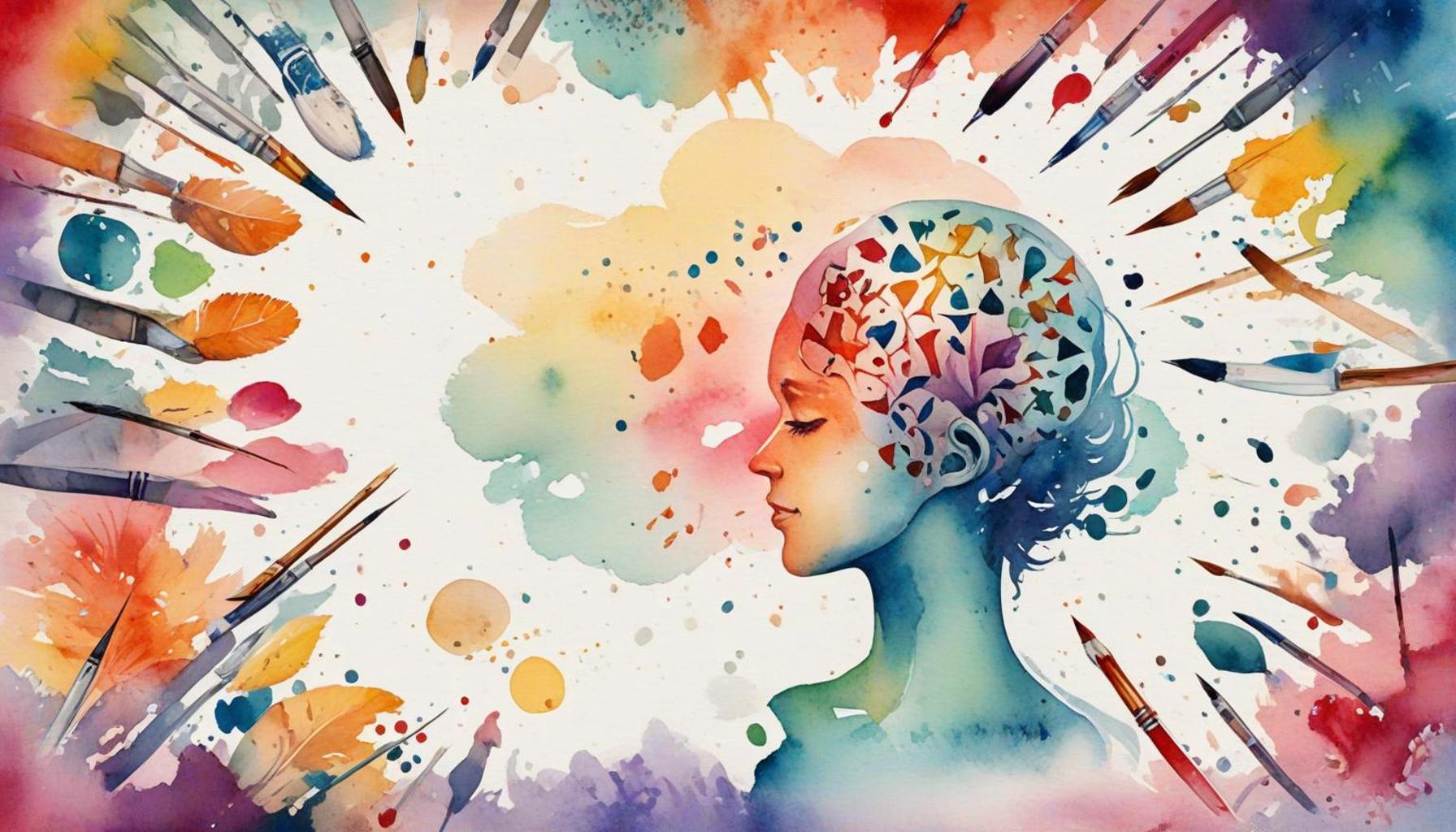Top Mind Games to Boost Student Focus and Mental Clarity

The Power of Mind Games in Education
In the dynamic landscape of academic demands, students often feel overwhelmed, struggling to maintain their focus amid a barrage of distractions. This reality poses a pressing question: how can students sharpen their concentration and enhance their mental clarity? One promising avenue is the integration of mind games into their study routines. These stimulating activities not only make learning enjoyable but also play a crucial role in cognitive development.
Mind games encompass a broad range of activities, from strategic board games like chess to engaging puzzles and thought-provoking riddles. The significance of these games extends beyond mere amusement; they are powerful tools that contribute to various cognitive skills.
- Boost concentration: Regularly engaging with mind games can significantly improve a student’s ability to concentrate on tasks for extended periods. For instance, chess demands sustained attention and foresight, requiring players to think multiple moves ahead, which translates to better focus in academic settings.
- Enhance memory: Many mind games involve recalling information—be it numbers, patterns, or strategies—thus improving memory retention. Games such as Sudoku and crosswords not only challenge students’ knowledge but also promote memory recall, making studying more effective.
- Increase problem-solving skills: The strategic nature of games like checkers or various computer-based puzzles enhances critical thinking abilities. Students learn to approach problems methodically, analyze outcomes, and make informed decisions—skills that are invaluable in both academic and real-world scenarios.
In Nigeria, where there is a passionate emphasis on educational attainment, incorporating mind games into everyday learning can significantly impact students’ academic journeys. The popularity of games like chess is evident, with schools frequently hosting tournaments. This not only fosters a competitive spirit but also cultivates an environment of collaboration and mutual learning.
Moreover, incorporating local riddles known as “akalaka” or traditional games can resonate well with students, as it showcases their cultural heritage while making learning fun. Such integration not only stimulates mental activity but also instills a sense of pride in their roots.

As we dive deeper into the world of mind games, we will explore an array of engaging activities designed to enhance focus and clarity. By merging enjoyment with education, these tools offer students a pathway to thrive academically while nurturing their cognitive abilities. So, let’s embark on this stimulating journey to discover which mind games can best support our pursuit of knowledge and mental agility.
CHECK OUT: Click here to explore more
Engaging Mind Games to Transform Student Learning
As students navigate the complexities of academic life, the pursuit of greater concentration and mental clarity often feels like an uphill battle. However, specific mind games have emerged as effective tools that not only entertain but also sharpen cognitive skills. Below, we explore several compelling mind games that can be seamlessly integrated into study routines, offering students enjoyable ways to enhance their mental faculties.
Chess: The Classic Strategy Game
Chess has long been celebrated for its intellectual rigor, making it a favorite among students keen on improving their focus. This two-player strategy game is not merely about moving pieces but involves deep levels of concentration, planning, and foresight.
- Strategic Thinking: Players must anticipate their opponent’s moves while developing a strategy to win, honing critical thinking skills that are transferable to academic problem-solving.
- Memory Retention: The game requires players to remember various openings, tactical patterns, and past games, thereby enhancing memory recall—an essential element in educational success.
- Emotional Intelligence: Chess teaches resilience and patience, essential attributes for students facing academic challenges.
Sudoku: Numbers That Challenge the Mind
Sudoku, with its grids and numbers, offers an engaging way for students to improve their logical reasoning and problem-solving skills. The objective is simple: fill a 9×9 grid so that every column, row, and 3×3 box contains all the numbers from one to nine.
- Enhanced Focus: The game’s need for concentration fosters an environment where distractions are minimized, allowing students to immerse themselves completely in the task at hand.
- Critical Thinking: As students work through various levels of difficulty, they develop analytical skills that help in comprehending complex subjects.
- Stress Relief: The repetitive nature of solving Sudoku puzzles can provide a mental break, reducing anxiety during study sessions.
Crossword Puzzles: A Fun Way to Boost Vocabulary
Crossword puzzles are not only entertaining but also serve as excellent tools for expanding vocabulary and enhancing memory. As students search for answers, they engage actively with language, making connections that facilitate better understanding.
- Vocabulary Building: As students attempt to fit words into the grid, they are exposed to new terms, enhancing their language skills, which are vital in any academic pursuit.
- Critical Analysis: Solving clues requires lateral thinking, pushing students to consider various possibilities and solutions.
- Group Engagement: Tackling crossword puzzles in groups can encourage collaboration among peers, fostering a rich environment of mutual learning.
In Nigeria, the incorporation of these engaging mind games can be particularly beneficial, with educational institutions and communities recognizing their potential to improve cognitive skills among students. By integrating such activities into their study habits, students can not only prepare for their exams more effectively but also enjoy the process of learning.
As we explore this engaging landscape of mind games further, it becomes evident that these strategies are not just about play—they are essential exercises designed to expand students’ cognitive abilities, thus paving their way towards academic excellence and overall growth.
| Category | Details |
|---|---|
| Memory Games | Enhances retention and recall capabilities significantly. |
| Puzzle Solving | Stimulates analytical thinking and promotes strategic reasoning. |
Engaging students in “Top Mind Games to Boost Focus and Mental Clarity” can greatly enhance their academic performance and cognitive abilities. Incorporating activities like memory games not only augments their memory retention but forms a basis for effective studying strategies. When students actively engage in such games, they develop skills that allow them to recall information swiftly during examinations or class discussions, fostering a sense of achievement and confidence.Furthermore, puzzle-solving games introduce an element of competition and fun, pushing students to think critically. These games require players to analyze variables, foresee outcomes, and devise strategies to overcome challenges. This form of cognitive training is invaluable as it translates into academic success and other real-life scenarios where problem-solving is essential.The world of mind games is vast, with ample resources available for students to explore. Whether through digital platforms or traditional board games, the possibilities are endless. Thus, parents and educators should encourage activities that spur creativity and sharpen focus through interactive means, leading to consistent and lasting improvement in students’ academic journeys.
SEE ALSO: Click here to read another article
Creative Mind Games to Sharpen Student Intellect
In the quest for improved focus and mental clarity, students can turn to various other dynamic mind games that provide a mix of entertainment and mental exercise. These engaging activities can be easily adopted into daily routines, challenging students while enhancing their cognitive faculties in fun and enjoyable ways.
Memory Games: Recall and Retention Reimagined
Memory games, such as matching cards or the classic “Concentration,” offer students a delightful way to improve their memory skills. By trying to remember the locations of various cards, players enhance their short-term memory and cognitive function.
- Memory Enhancement: Regular engagement with memory games trains the brain to reinforce connections between neurons. Studies show that participants who engage in these games experience measurable improvements in memory over time.
- Attention to Detail: Players must notice and remember tiny details, cultivating a strong focus that easily translates to classroom settings.
- Collaborative Learning: Memory games can be played in groups, encouraging peer support and communication, which fosters a collaborative learning environment.
Brain-Training Apps: Digital Platforms for Mental Growth
With the growing interest in technology, brain-training apps like Lumosity and Peak provide interactive platforms where students can boost their cognitive faculties anytime, anywhere. These apps offer personalized brain workouts tailored to individual skill levels.
- Tailored Training: Most brain-training apps adapt the difficulty of games based on the user’s performance, ensuring students are always challenged without becoming frustrated.
- Diverse Skill Development: From logic puzzles to memory challenges, these apps target various areas of cognitive function, promoting all-around mental growth.
- Accessible Learning: With mobile devices and internet access widely available in Nigeria, students can conveniently integrate mental exercises into their daily routines, making cognitive training more accessible.
Board Games: Social Interaction Meets Strategy
Board games like Settlers of Catan and Ticket to Ride combine strategic depth with social interaction. These games provide platforms for students to hone their tactical thinking while enjoying camaraderie with peers.
- Strategic Decision-Making: Each turn in a board game requires players to assess their position, weigh options, and make informed decisions—skills that serve well in academic pursuits.
- Social Connectivity: These games promote interactions and discussions among players, leading to enhanced communication skills and teamwork, crucial for collaborative learning endeavors.
- Fun Learning Atmosphere: The competitive yet friendly environment encourages students to stay engaged, making the learning experience enjoyable while quietly sharpening their intellect.
Countries like Nigeria have a vibrant culture of games and recreational activities, and incorporating these mind games into educational frameworks can yield significant cognitive benefits. Schools can initiate game club sessions, integrating these activities into their curricular and extracurricular offerings.
Ultimately, by embedding these mind games into their study schedules, students can experience tested and proven benefits, paving a path towards improved focus, enhanced clarity, and a deeper understanding of their academic material. The fusion of fun and learning through these innovative mind games ensures that students are better prepared to tackle the challenges of their educational journeys.
CHECK OUT: Click here to explore more
Conclusion: Elevating Student Focus through Engaging Mind Games
In a dynamic educational landscape, cultivating mental clarity and focus among students is essential for success. The exploration of various mind games—from memory challenges and brain-training apps to strategic board games—presents promising avenues for enriching cognitive development. By integrating these engaging activities into daily routines, students not only foster crucial skills but also transform learning into a more enjoyable and social experience.
As evidenced by research, regular participation in mind games enhances memory, sharpens attention to detail, and promotes critical thinking, all of which are paramount in academic settings. The impact of these games extends beyond individual improvement; they encourage collaborative learning, ultimately enhancing social connectivity and communication skills. The interactive nature of these games creates an environment where students can thrive, exchange ideas, and develop strategic prowess.
Additionally, the widespread availability of digital platforms in Nigeria presents a unique opportunity for students to access brain-training apps conveniently. As technology continues to evolve, embracing these tools can significantly diversify the methods of mental training available to learners. As schools and educational institutions in Nigeria begin to recognize the abundant benefits derived from incorporating mind games into their curricula, a new generation of focused and mentally agile students can emerge.
In conclusion, the journey toward improved student focus and mental clarity is not merely a challenge but an adventure waiting to unfold through the power of mind games. By embracing fun, engaging, and strategic play, students can unlock their full potential and effectively navigate their academic paths with enhanced confidence and clarity.


